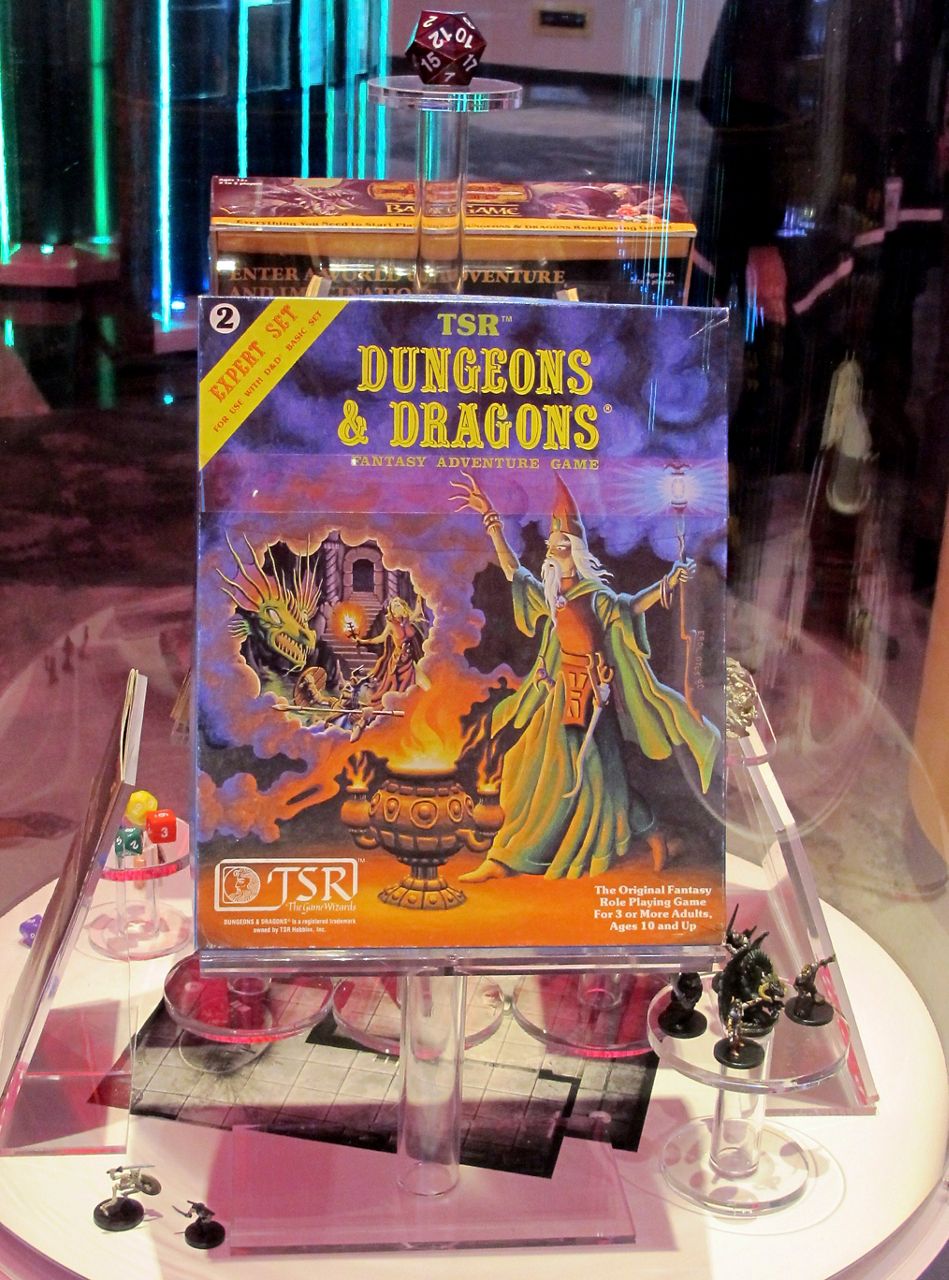CINCINNATI — For 50 years now, people around the world have been swinging swords, casting spells, battling orcs and slaying dragons alongside their friends, often from the comfort of their own home.
For some, the iconic role playing tabletop game Dungeons and Dragons isn’t just a hobby, it’s a way of life.
The Book Rack in Cincinnati might look like a normal bookstore, but in the minds of Monica Marlowe, Andrew Marlowe, George “Loki” Williams and Randy Price, their table in the back room was a ship out at sea.
Andrew, the dungeon master on this night, set the scene.
“You have all been out at sea for several weeks… The sky turned black. And the winds kicked up. And the sea raged… Spectral figures glide through the rigging… You can feel whips of ectoplasm ripped away from it,” he described to his fellow players.
Imagination is at the heart of any good game of Dungeons and Dragons, which turns 50 this year. The group described above features players who’ve been at it for decades, and all have experience in game design as well.
“I have been gaming since I was in high school, so almost 40 years,” Monica Marlowe said.
Price “started back in 1983.”
Williams started in 1978, just four years after the game came out.
“Been at it ever since, and been publishing work for 14 years at this point,” he said.
Williams remembers a time when the game was shunned, even by members of his own family.
“‘Oh my god, it’s horrible, it’s evil! Oh, look, you’ve got this monster manual. It’s full of devils and demons and such.’ Yes, of course it is. If you’re playing a hero, you need adversaries that are worth defeating,” he said. “I had to cross a picket line that had my grandmother holding a sign in it to go buy D&D books.”

The game has come a long way since then. Dungeons and Dragons, also known as D&D, has not only persisted; one could call it the grandfather of countless other tabletop games and see its influence in all kinds of media.
The mechanics are simple enough for newcomers to pick up on. It starts with creating a character, which can come in a variety of races and classes.
“This is Velma Throat Ripper. She’s a barbarian, half-orc barbarian,” said Price of one of the countless characters he’s played over the years.
Williams said he “tends to either play a bard or on the exact opposite end of the spectrum, I tend to play a monk.”
For Monica, “My style of role playing in gaming is to learn who my character is through the course of playing the game.”
Others play the same character for decades.
“Some people write novels about who their characters are,” Monica said.
Players should expect to roll a lot of 20-sided dice.
“We craft numbers to represent what our characters are able to do and not able to do,” Monica said. “It’s about making imagination out of numbers. Or making numbers out of imagination.”
Of course, the dungeon master is essential.
“There is a joke phrase in the hobby called the forever DM [dungeon master]. And I am just shy of being the forever DM with our groups,” Andrew said.
He explained why he loves the role.
“I like to tell the stories, or facilitate telling the stories. I will have a general idea of where I want things to go. And possibilities. But it is way more fun to find out how we get to where we’re going, and how things don’t go according to plan,” Andrew said. “Without those risks and those costs, it’s meaningless, and it’s not satisfying either. There are times I’m rooting for them to get a beat down. And there are times I’m rooting for them to deliver the beat down.”
Occasionally, D&D has been the butt of jokes in pop culture, but the players in this group probably have a lot more friends than the average person.
“We get to game with people we’ve never met. We get to play with people that we’ve known for years and only get to see every so often. Get together with the same people every week, week after week, for years,” Monica said.
Price said the social aspect is his favorite part of the game.
“I’ve met and connected with more people through this hobby than I would’ve ever hoped to have met in my life,” he said. “I wouldn’t trade it for anything. It’s great.”
That togetherness creates the stories players live for.
“When I sit down to play, I don’t sit down to tell just my story. I sit down to help tell the person sitting next to me’s story,” Monica said. “We’ll kind of throw things out to each other and say, hey what if your character did this thing?”
Williams described a typical game.
“Here’s the setup. They come up with something and the DM’s like, ‘Ok well, this is what happens next. This is what you run into next. Here’s another thing for you to work with. Oh, a bunch of orcs just walked into the bar, and they’re all drunk,’” he said. “If you swing your sword at the dragon and you miss, and you slip on a bunch of gold pieces and you fall on your behind, it does make for a colorful moment.”
Anyone who’s ever knocked it might just want to try it. 50 years in, it’s safe to say D&D and its many offshoots aren’t going anywhere.
There are several D&D groups on social media to help players connect, including groups for Kentucky, Lexington and Cincinnati on Facebook.



